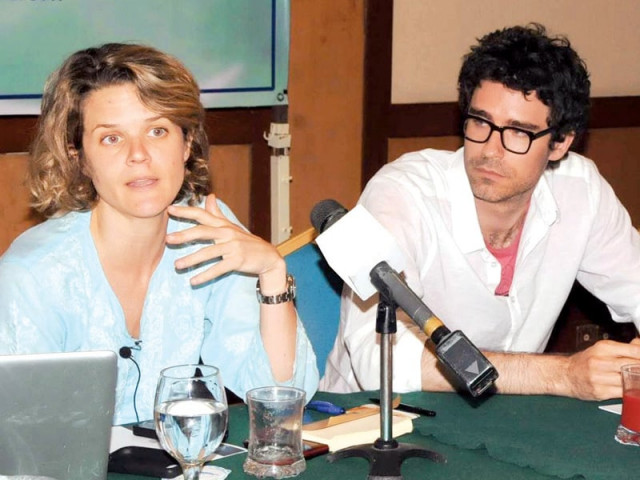
Three Americans were trapped at Avari Towers on Monday, the day Osama bin Laden was killed in Abbottabad. They were freed from the centrally air-conditioned prison for a brief period to go to the PeaceNiche where they were introduced to the tweeters, bloggers and facebookers of Karachi, who all had something to say about the al Qaeda leader’s death.
The next day, the US Consulate organised a discussion with the media at the hotel. This had already been planned for their four-day pitstop in Karachi as part of the University of Iowa’s International Writing Programme (IWP) writing tour, funded by the US State Department.
Poet, author and journalist Eliza Griswold and fiction author Joshua Ferris represented the art of the pen while Ram Devineni, the filmmaker in the trio, hid behind his camera. They were chaperoned by IWP programme officer Kelly Bedeian.
She explained that the programme is meant to bring together the writers of the world and has been doing so for the last 44 years to promote global understanding and advocate literary freedom. She introduced the authors and allowed them to speak about their work.
“Every American is not Raymond Davis. After all, you’re no Raymond Davis and nor are you,” said a Pakistani journalist, pointing at two of the Americans, one after the other.
“Maybe I am,” joked fiction writer Ferris, screwing up his eyes conspiratorially.
“We are super grateful to be here,” said Griswold. She looked every bit the journalist, dressed in a sky-blue kurti with white embroidery. Her first book of poems, Wideawake Field, included works she pieced together during her time in Afghanistan. Her most recent book, The Tenth Parallel, examines Christianity and Islam in Africa and Asia, drawing parallels between the two.
“There’s a sense of familiarity here which I don’t get back home,” she mused, adding, “When I come to the southern-edge of the Muslim world.”
“Well, rather than boring you to tears, I feel like a dialogue is so much more productive. So if you want to ask about my involvement in Osama’s shooting, go for it,” joked Ferris, grinning from behind his thick ink-black glasses. He was interested in finding out what happens in Karachi, especially since there is “an enormous amount going on between America and Pakistan”.
The dialogue started off with literature. For Ferris, writing was not about making yourself stand out as an author but allowing yourself to be influenced by intuition and letting that take its course. It took him two and a half years to finish his last book, Unnamed. His debut work, Then We Came to an End, was translated into 25 different languages, not including Urdu, which he said he regrets.
A silent Ram continued to document the dialogue. He was regarded as the only representative of the “new media”, among the three visitors. Ram’s most recent documentary, ‘Bombay Dreams’, was launched in Brazil last weekend. Currently, he is working on a documentary about human towers around the world, inspired by his native country, India. He is one of the founders of the Academia Internacional de Cinema - the first independent film school in Sao Paulo, Brazil. He is the founder and editor of Rattapallax, Inc., which publishes poetry books and DVDs and has received grants from the National Endowment for the Arts, New York State Council for the Arts, and The New York City Department of Cultural Affairs.
As expected, the dialogue turned into political banter as media representatives hounded the guests with questions. “Americans are apolitical… and do not know anything about the world around them,” said one man.
“Well, I wouldn’t say all Americans are apolitical for sure,” clarified Ferris, adding, “I know Thanksgiving at my house is all about politics and who should be doing what and it gets dirtier as the aunts and uncles get drunker.”
The trio admitted that at large, Americans are not familiar with the history and political scenario of other countries. “But I know of some Americans who think that the current war we are in is useless and they want our troops to come back home, while others think we are fulfilling an ‘American duty’ by ending terrorism,” said Ferris.
The conversation moved between self-censorship and the media’s responsibility to report the truth, all aspects of it.
“This is what we are doing right here right now,” said Griswold. “It may sound over-blown but something like this [the conference] does not happen every day and I really think it’s the right way to create a dialogue to change stereotypes...”
At large, Pakistani perceptions of Americans as the ‘bad guys’ needs to be cleared up as does the American perception of Pakistan, agreed the trio.
“I feel so bad about the Yahoos back at Times Square who celebrated Osama bin Laden’s death. A man dying is not something to celebrate,” said Griswold.
“We need these forums to continue and this type of responsible rhetoric to continue. If there is a genuine desire to enlighten change, we can help correct misconceptions,” added Ferris.
Published in The Express Tribune, May 4th, 2011.

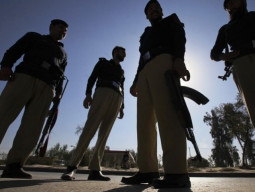




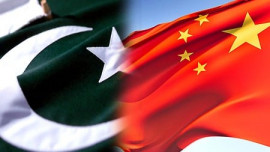


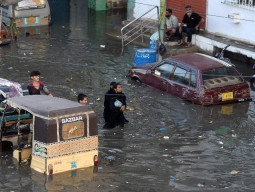


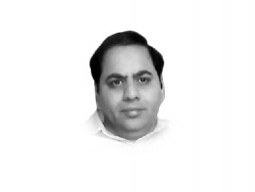

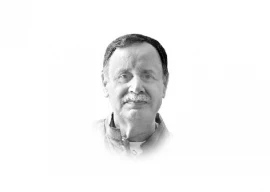



COMMENTS
Comments are moderated and generally will be posted if they are on-topic and not abusive.
For more information, please see our Comments FAQ